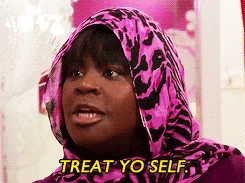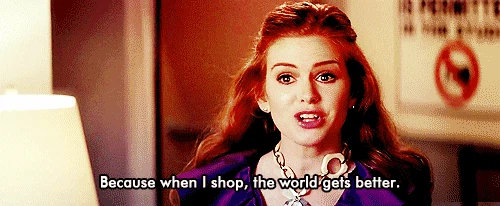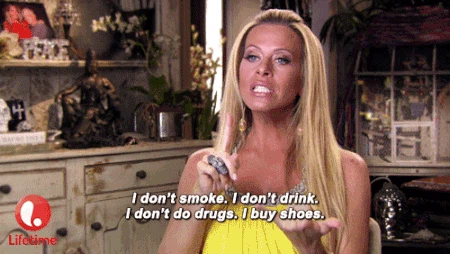Is "Retail Therapy" Good Therapy?
Do you ever have a bad day and find yourself skimming clothing websites, clicking “add to cart”? We’ve all been there, and sometimes shopping makes us feel better, hence why it’s called retail therapy.

However, it’s important to monitor our spending habits to make sure that self-soothing shopping doesn’t lead to more problems.
“Retail Therapy” Is a Quick Fix
I love shopping as much as the next gal, and I have no problem admitting that I’m happy when I shop. Like many other young women, I sometimes reward myself with a new sweater or a pair of shoes after a hard week because sometimes it’s nice to treat yourself.

Not only is shopping fun, but it can also give someone a sense of control over what’s going on in their lives. New York-based psychologist and author of To Buy or Not To Buy: Why We Overshop and How To Stop, April Bensen says, “This is a situation you can control — ‘I see it, I like it; I buy it; it’s mine.’ It can give [people] a feeling of mastery.”
This makes sense if you’re going through something like a breakup or another problem in your personal or professional life that you wish you had more control over.
Shopping can also be a good mood-booster, as Nadine Kaslow, professor and psychologist at the Emory School of Medicine in Atlanta, says, "Many people go shopping when they feel a little down or badly about themselves. Shopping can temporarily take people's minds off their troubles. Also, shopping for things we like can help us feel better about ourselves — for example, clothes make us feel we look better."

However, this works as a band-aid to your problems instead of addressing them directly.
“Retail Therapy” Doesn’t Address the Underlying Problems
Though retail therapy can feel good in the moment, you will still wake up the next morning with the same problems you had before. Putting on your new pair of shoes might make you feel better, but it also acts as a band-aid for the problems you're facing.
Beverly Hills-based psychiatrist Dr. Carole Lieberman has researched the psychology behind compulsive shopping since the 1980s. She writes, "People who are sad, miserable, or depressed usually feel an emptiness inside. So they engage in behaviors that fill up this emptiness, such as eating too much, drinking too much, or spending too much."

If you find yourself reaching for your credit card too often when you’re upset, it’s probably a good idea to talk to a therapist about what’s motivating you to do so. It’s always good to have a person who is both a mental health professional and doesn’t have any bias as to what’s happening in your life give you some healthy input.
Does this mean you should fully stop shopping? No, as long as you do it in moderation and seek psychological help for what’s really bothering you.
San Francisco-based therapist Peggy Wynne says it best. She writes, “We all enjoy a little retail therapy now and then. In small, manageable doses, it can soothe the soul. Shopping isn’t a problem when it’s done in moderation, just like moderate use of alcohol.”

But when it’s not done in moderation and you use it to mask your problems, it can lead to more problems in your personal life that bring you right back to where you were before.
Terrence Shulman, founder of The Shulman Center for Compulsive Theft, Spending, and Hoarding, writes, "The problem becomes when you continue to go to the same well to cure your loneliness, but it actually causes more problems that will cause more loneliness.”
Shulman continues, "Shopping in particular, what we know is it's one of the primary reasons people have difficulty in their intimate relationships, arguments about money. But if you keep shopping because you're not getting the love you want and probably hiding it from your beloved, it will probably push you further apart and it becomes a vicious cycle."

Though retail therapy to make yourself feel better after a long day may seem harmless, making it a habit can lead to problems with your relationships and your finances. Instead of being a temporary fix or a problem solver, shopping too much can, unfortunately, lead to more problems.
Closing Thoughts
Shopping feels amazing in the moment. However, it’s easy for a shopping obsession to go awry and cause financial problems. This is why it’s important for us to stick to a budget and ask ourselves why we want to shop when we’re sad. If we’re financially responsible and know when to seek help for problems in our personal lives, we can enjoy shopping without any worries.